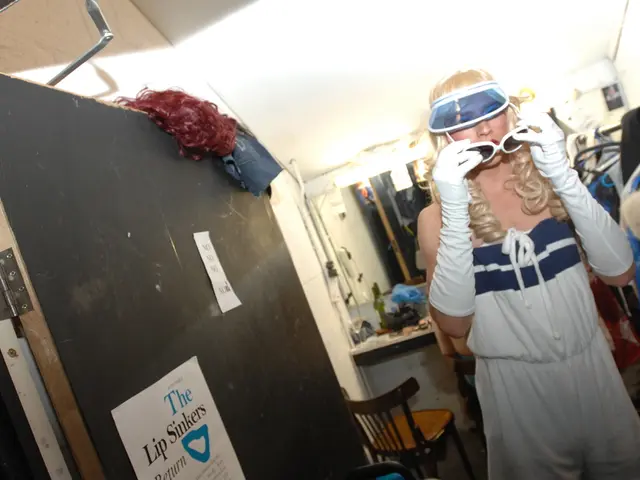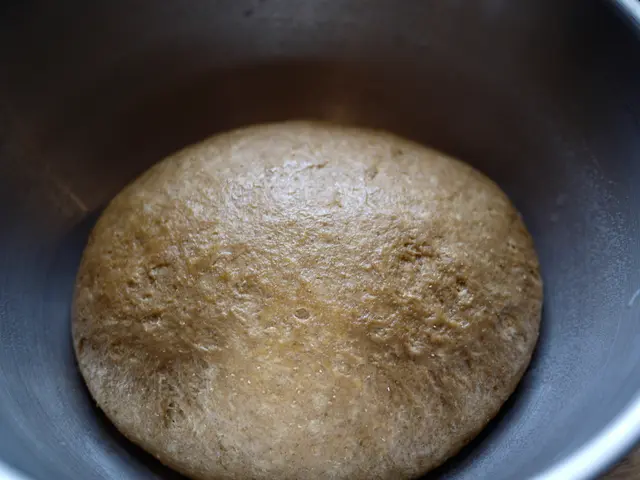MRSA spread: Understanding transmission methods, preventative measures, and additional insights
Let's Get Clear on MRSA
Having MRSA (Methicillin-resistant Staphylococcus aureus) on or inside your body, even without showing symptoms, is known as MRSA colonization. It means you can harbor the bacteria without experiencing its nasty effects - but don't think this is no big deal.
This sneaky bacteria can lurk in moist zones, such as:- the nose- the throat- the groin- armpits- skin folds- the perineal area
Though it's a silent passenger, MRSA colonization is a red flag for healthcare professionals because it invites the risk of spreading the bacteria to others, particularly in healthcare settings. That's why.
MRSA infections warrant concern because they're caused by a pesky strain of Staphylococcus aureus that's resistant to many common antibiotics, such as methicillin, penicillin, amoxicillin, and oxacillin. This resistance makes treatment trickier - and potentially more perilous - especially for vulnerable individuals.
MRSA can hopscotch through:- close contact with infected or colonized people- sharing unclean equipment or supplies- environmental contamination of household surfaces
Colonization doesn't always lead to infection, but if your immune system takes a tumble or you catch a wound, watch out.
To protect your body, practice good hygiene:- wash your hands and take showers regularly with antiseptic soap- maintain wound cleanliness and coverage- refrain from sharing towels, razors, clothing, and bedding- wash clothes, sheets, and towels in hot water and dry on high heat- disinfect surface areas frequently
In medical settings, medical professionals may inspect for MRSA bacteria, especially before surgeries. If they find any, they might prescribe a nasal cream or spray, body wash, and shampoo to reduce the MRSA bacteria. Usage typically lasts for around 5 to 10 days.
Keep an eye on skin infections, especially in areas with cuts or abrasions. Signs of MRSA infection include:- pain- redness- pus- swelling- warm-to-the-touch sensation
Following good hygiene guidelines at home and in medical settings can help reduce MRSA colonization and infection risk.
Learn more Curious about MRSA? Check out these Q&A's:- Will MRSA go away on its own?- Does chlorine kill MRSA?- Will I always carry MRSA bacteria?
In-depth:
MRSA Colonization Durations and Spontaneous Resolution
The duration and natural resolution of MRSA colonization depend on several factors, such as the site of colonization, the individual's health, and whether decolonization strategies are employed.
Decolonization Strategies:- Active Decolonization: Topical antibiotics, like mupirocin, can significantly reduce MRSA carriage[1]. These measures are often used in healthcare settings to thwart MRSA transmission.- Spontaneous Resolution: Without intervention, MRSA colonization could persist. However, some individuals may experience spontaneous resolution, though this varies among individuals.
Colonization Duration:- The duration of MRSA colonization can span months or even years without treatment.- Factors influencing the duration include health conditions, decolonization efforts, and the presence of other pathogens.
Conclusion:Though MRSA colonization might spontaneously resolve, relying on natural resolution alone is risky, especially in high-risk situations and for people with compromised immunity. Active decolonization methods, like topical antibiotics, can help reduce prolonged colonization and infection risk.
- MRSA, or Methicillin-resistant Staphylococcus aureus, can be present in various moist zones of the body such as the nose, throat, groin, armpits, skin folds, and the perineal area.
- In medical settings, a prolonged period of MRSA colonization could lead to a higher risk of spreading the bacteria to others, particularly in healthcare settings.
- To help reduce MRSA colonization and infection risk, good hygiene practices like washing hands, maintaining wound cleanliness, and disinfecting surface areas frequently can be beneficial.
- The duration and spontaneous resolution of MRSA colonization can vary greatly depending on factors such as the site of colonization, the individual's health, and any decolonization strategies employed.








